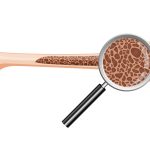A quick guide to understanding prostate cancer and how to spot the signs early
While cancer affects millions of people globally, the more we know, the better care we can take of ourselves. As with any health concern – prevention is key. Let’s delve into 10 important things to know about prostate cancer.
- Prostate cancer is the most common cancer affecting men in South Africa.
- Prostate cancer often occurs without any symptoms.
- These symptoms are more likely if prostate cancer is advanced: frequent urination, especially at night; straining to pass urine, painful or burning sensation during urination or ejaculation, leaking urine, bloody urine/semen.
- Advanced cancer can cause deep pain in the lower back, hips, or upper thighs.
- International and local research indicates that the risk for aggressive prostate cancer is higher in black men. The most common risk factors include African ancestry, increasing age (from 50s onwards), and a family history of prostate cancer on either the mother or father’s side.
- It might be that prostate cancer grows more rapidly in black than in white men. Rural men, especially, may present late and with advanced disease.
- While some risk factors such as race, family history, and age cannot be changed, there are lifestyle choices that can help lower the risk of prostate cancer.
- Eating a healthy diet is important. Men who consume excessive red meat or high-fat dairy products may have a slightly higher risk, and high alcohol intake also increases the risk.
- Maintaining a healthy weight, avoiding the use of steroids, and not smoking are all key steps in reducing the likelihood of developing prostate cancer.
- Screening for prostate cancer is done with a blood test called the Prostate Specific Antigen (PSA) test to help detect prostate abnormalities.

He who conceals his disease cannot expect to be cured. – Ethiopian Proverb
Help at hand
The Cancer Association of South Africa (CANSA) recommends talking to a doctor about screening by age 45, or sooner if you have a family history. The PSA test is often combined with a digital rectal exam.
Contact your local CANSA Care Centre for information on and bookings for Prostate Specific Antigen (PSA) blood test screenings: info@cansa.org.za
Images: Unsplash





















